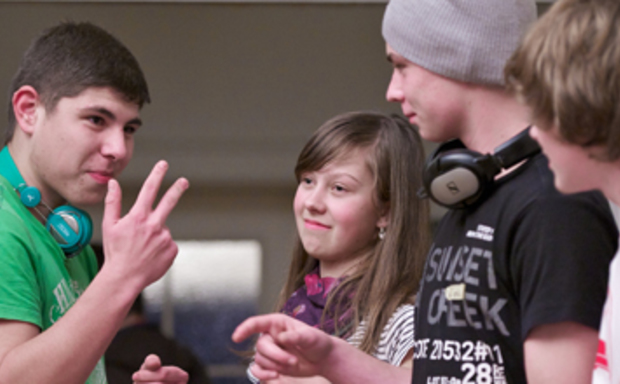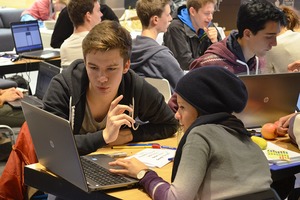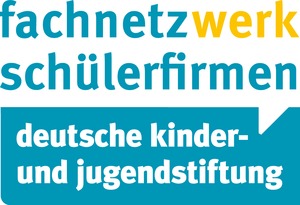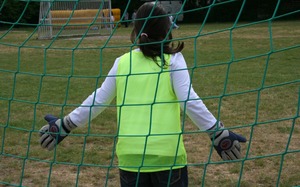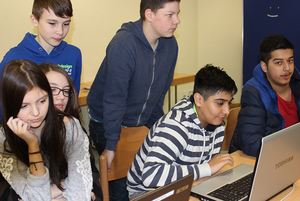Why this is important
Young people need to have confidence in their ability to make a difference. The most recent Shell Youth Study confirms this: Youth from socially disadvantaged households do not believe that they have much of a chance in our society. They feel useless and make unrealistic plans for the future, or none at all. Regular career counselling services fail to reach them, while employers are desperately looking for skilled workers.
The DKJS develops programme formats that successfully motivate young people to get involved by showing them that they are talented and much needed, despite what they may think.
‘Think Big’ is a youth programme co-sponsored by the Telefónica Foundation and the German Children and Youth Foundation in collaboration with O2. By offering workshops, coaching and project funding, the programme supports young people in navigating the digital world and expanding their technological skills. They learn how to develop ideas and an entrepreneurial mind-set, and how to launch their own social projects to make a difference in society. Ideas include a fundraising marathon across Europe, a film project with refugees, or apps that make life at school easier. Pupils document the outcomes of each project phase on the shared programme website so that others can be inspired by their ideas and do the same.
Getting something started, acting independently, implementing ideas as a team – the student companies of the German Children and Youth Foundation translate business education into an educational setting that children and young people find appealing and motivating. They work as they would in a real company and have to face the same economic challenges as real companies – from pricing policies to staff recruitment. The student companies are designed as long-term projects, involve students from multiple grade levels, and have increasingly achieved a sustainable level of business. Currently the network consists of about 520 student companies based at all German school types, involving more than 5,000 pupils.
According to UNICEF, Germany currently hosts some 65,000 child and youth refugees with an insecure residence status. In a time marked by anxiety and uncertainty, football often becomes something they can hold on to in their everyday experience. Playing football can bring back a little light-heartedness to their lives and can put them in touch with people in the neighbourhood and in sports clubs. By providing low-threshold opportunities, the ‘Welcome to Football’ programme enables young refugees to access sports activities, thereby supporting integration and social interactions. The main strategy to do achieve this is by forming ‘welcome alliances’, that is, encouraging Bundesliga and Bundesliga 2 football clubs to collaborate with local education providers, civic initiatives, local actors and amateur clubs.
How can the social and political participation of young people be encouraged with digital media? Which effective methods and tools are already available? What do policy-makers, local authorities, youth organisations need to be able to promote youth participation with digital tools? The joint project 'jugend.beteiligen.jetzt' by the German Children and Youth Foundation (DKJS), the German Federal Youth Council (DBJR) and (IJAB) – International Youth Service of the Federal Republic of Germany, initiated by and with the support of the Federal Ministry for Family Affairs, Senior Citizens, Women and Youth wants to firmly anchor a dynamic participatory culture in the daily lives of young people and policy makers. The project connects initiators and policy makers and qualifies them for accessible, target group-appropriate participatory processes. The participation of young people through digital methods and tools must become a guiding principle of political processes. The online platform of the project provides a combination of experience and tools. It encourages participation through knowledge transfer, digital tools, processes and methods.
